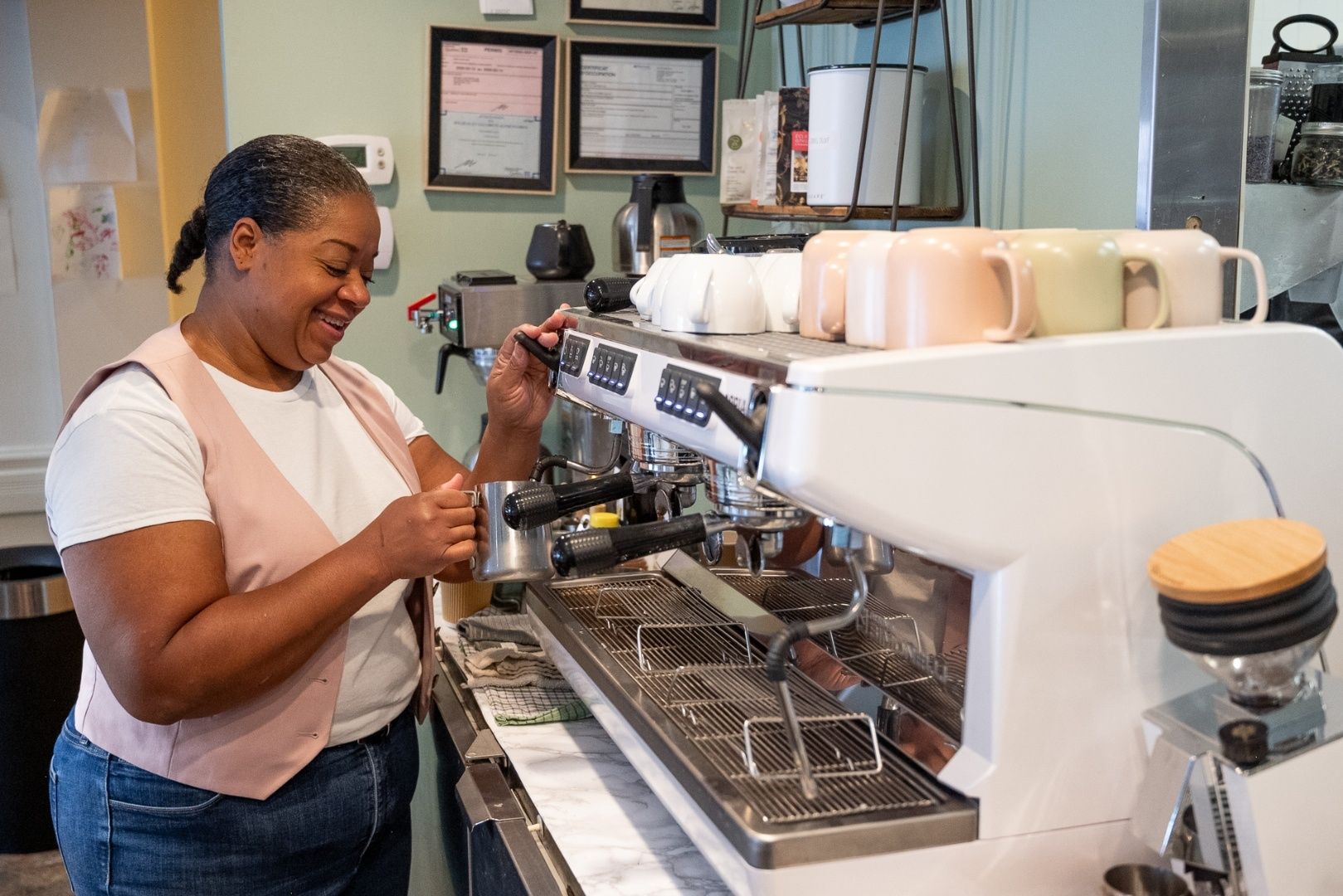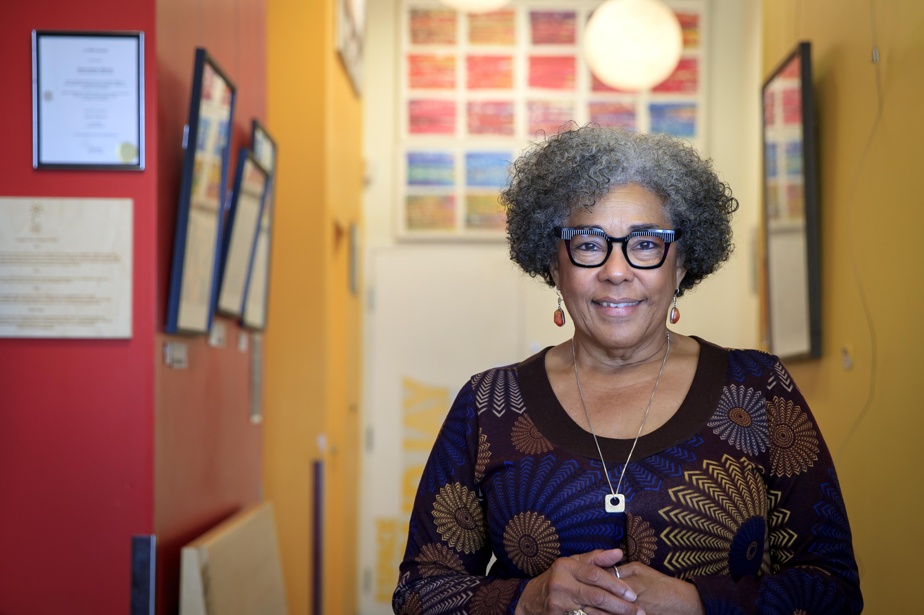Think of the ropes of a ring and the strings of a violin, and you will quickly understand that few are able to play both! Sarah-Judith Kayiri Hinse-Paré — musician, writer, writer, songwriter, performer, and Canada's vice-boxing champion in her category — embodies a force with many facets. La Converse met her in her recording studio in LaSalle to find out more about the unique universe of this artist and athlete who refuses to be locked into the limits anyone might try to impose on her.
“Kayiri is my middle name, a Burkinabé name,” begins the young woman in a decidedly hip-hop style. “This name represents the ability to not be influenced by the judgment of others and to dare to pursue one's own aspirations. It fits me perfectly!" exclaims the artist and athlete before adding: “I was often asked to choose between sport and music, but for me, it was unthinkable to choose one at the expense of the other.”
Wearing a denim jacket and matching skirt, Kayiri completes her look with a white and pink cap with her first name on it. Her large earrings in the shape of Africa sway gently, proudly celebrating her Burkinabé roots.
“I was not free to be myself”
Originally from Gatineau, Kayiri says she has always felt marginalized because of the colour of her skin. With a father who is Black and a mother who is white, she grew up in a minority, which she felt keenly during her childhood. “It was difficult, honestly, to grow up in Gatineau. I felt that there were not a lot of people who looked like me. In elementary school, I was the only Black one; therefore, I am very lucky to have encountered music very early; that was my refuge... I was not in my environment, I was not free to be myself”, she concludes.
From the age of seven, Kayiri juggled sports and violin, two passions that would never leave her alone. “I like to create, play sports, move,” she insists. Although I have explored various sports, fiddling has remained a constant in my life. For as long as I can remember, I have always played sports and music at the same time.”
It was in CEGEP, after experiencing harassment, the young girl decided for the first time to put aside her sports activities, which continued for several years. “I prefer to avoid going into details, but this period plunged me into depression,” she confided in a terse manner so as not to dwell on this episode of her life. “During this ordeal, I gained a lot of weight because I ate my emotions,” she admits bluntly.
In 2010, she moved to Montreal to study at the Montreal Conservatory of Music. Kayiri gradually regained self-confidence as her musical career took off. “An incredible universe opened up to me,” she recalls with enthusiasm. ÈI started playing with bands, performing more, and even started to travel with my music.”
“It changed my life, to feel strength for the first time”
It was also at this point that the artist decided to regain control of her health. Entering the Underdog gym, the young woman didn't expect boxing to become an integral part of her life. “Funny, boxing really wasn't something I would have imagined doing,” she says with an amused smile. Initially, the young woman was simply looking for a gym to lose the weight accumulated during her depressive years.
But her coach, seeing her potential, offered something different. “He came to me and said, “You're really athletic. Maybe it would be good for you to do a combat sport.” I told her: 'No, I am not violent,'” she recalls, laughing out loud. “It's true that I had quite a few prejudices about boxing. I thought it was evil. And yet... I saw so many people transform,” she says with a smile. “I saw guys who were in gangs go back to school, start a new life. I myself have transformed through boxing.” In the same breath, she adds: “It changed my life, to feel strength for the first time. To regain possession of my means.”
Recalling her beginnings, she continues: “As a classical violinist, I was used to staying in the shadows, practicing alone, without talking to others. But at that moment, 20-year-old Kayiri practicing on punhcing bags with boys... It was unbelievable.”
“Finally, I got in the ring and started fighting. My first match was quite funny; I won very easily," she says. Then, just after the fight, I drove to Montreal because I was playing at a music gala.” She goes on: “Boxing requires a lot of discipline, but that's also the case for music. To be successful, you need to set a schedule, set goals, and stick to them. Right now I've taken a break from boxing. I find that there is a balance to be found, breaks to take. Now I'm going to really push the music. I have a message to share,” she says.
Domestic abuse: “Who would have thought that could happen to a woman boxer?”
For Kayiri, music is an outlet, a way to free oneself from buried pains. His last single, Have the upper hand, is an example. “I wrote this song during the pandemic, a period that allowed me to take a step back,” she says. “I was asked why I slowed down my musical releases, but the truth is that I was experiencing domestic violence,” she confides, her eyes piercing.
“When you think of a woman boxer, you imagine strength and resilience. However, I was a victim of domestic violence. Who would have thought that could happen to a woman boxer? But it happened.”
After sharing her story, she understood how common it was. In combat sports, many women experience violence, but they often remain silent. According to the boxer, the reason for this silence is the feeling of shame that these women experience. “The first feeling you have when you have been a victim of domestic violence is shame. By becoming a victim, you are ashamed, because you have not decided anything. It is an external person who comes to take an action, and that makes you a victim,” she explains.
“For me, it happened at the same time when we were talking about femicides, during the pandemic. So I said to myself, 'Oh! I am one of those women,'” she says, laughing nervously.
“The day after I was strangled by my ex, I was so confused... I asked myself how could I have been so naive, how had I not seen it before? Then, shame sets in. I am a victim of domestic violence, The shame !” she exclaims. After a short while, she goes on: “Then some people don't talk about it, just because they're in denial. Many experience physical abuse, but there is also all the psychological and emotional abuse that precedes physical abuse. For me, the physical abuse only happened once — he strangled me — but the verbal abuse started right from the start of the relationship.”
If Kayiri can now talk about it, it's because she feels that she is in a good healing process. “I am very open to the idea of talking about it and being the voice of women who are in these situations. To be a victim does not mean to be defeated. You can overcome the worst trials and not let yourself be trapped in the role of victim. We can decide to stop listening to these negative voices in our heads,” she says.
“Painful stories are a part of me, but they don't define me: I have the choice between letting myself be slowed down by these trials or continuing to move forward, to achieve my dreams, to grow.”
Breaking your limits
To get this message of resilience and hope across, Kayiri is not limited to the stage. She is also involved with young people, in particular through writing workshops that she leads in schools. “Working with them allows me to see how contemporary culture, marked by violence in games and negative influences, shapes their vision of the world and their energy,” she says. “I also do workshops in prisons with women,” she adds. With a background marked by obstacles, Kayiri explains that she has the ability to create deep relationships with young people from all walks of life. “My experiences give me great empathy and an understanding of their reality.”
Kayiri encourages young people to explore their dreams, to imagine horizons that they may never have considered before, to open doors and to go beyond their limits. “For me, life is about constantly looking to grow and become a better version of yourself,” she insists, her hands moving with her words.
Her message is clear: “You can achieve anything you want in life. Limits are a human invention. Great inventors and creators have often succeeded by going beyond what they were told was possible. If you encounter a limit, analyze it, adapt and keep moving forward. Don't be held back by limitations imposed by others. Follow your heart, pursue your dreams, and don't stop because of obstacles.”





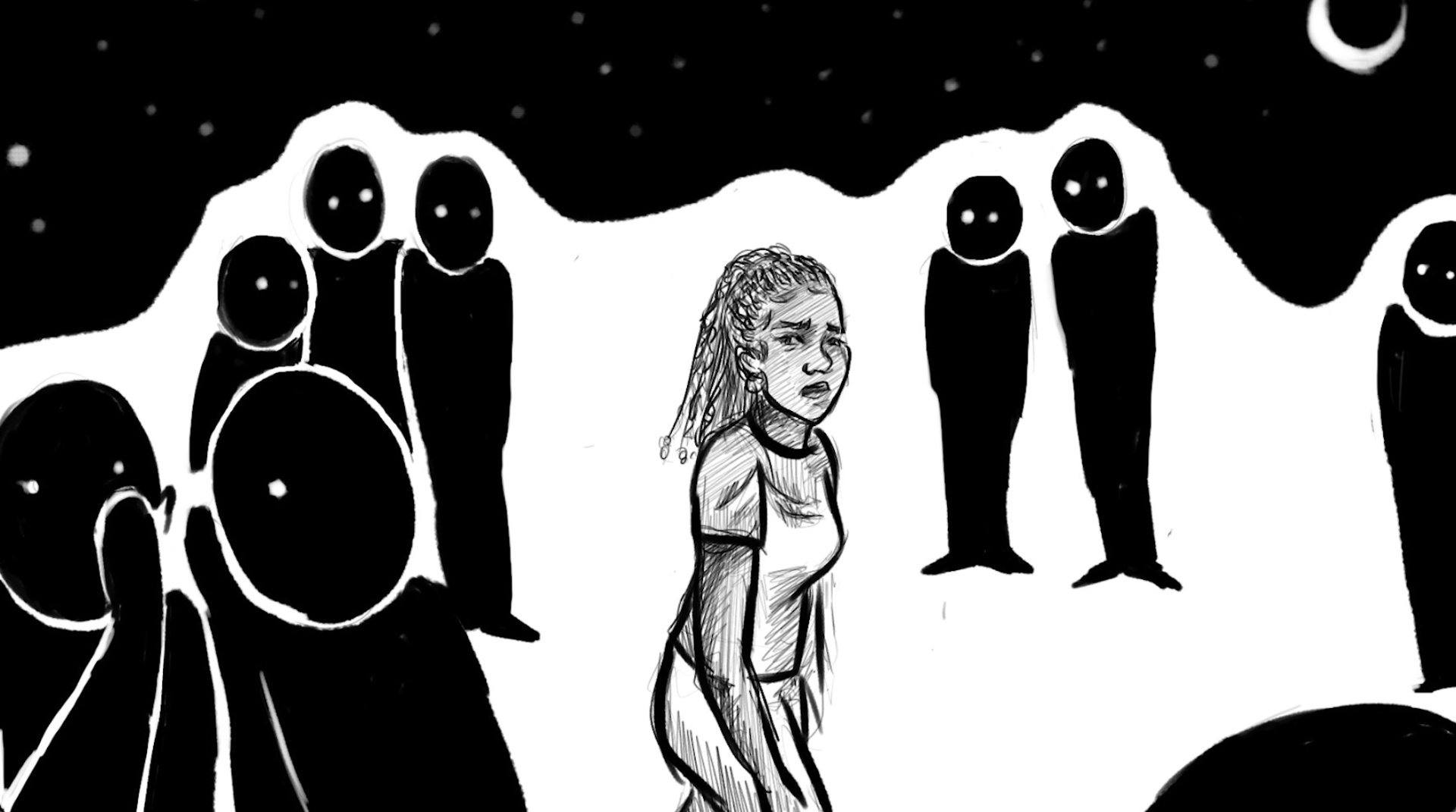
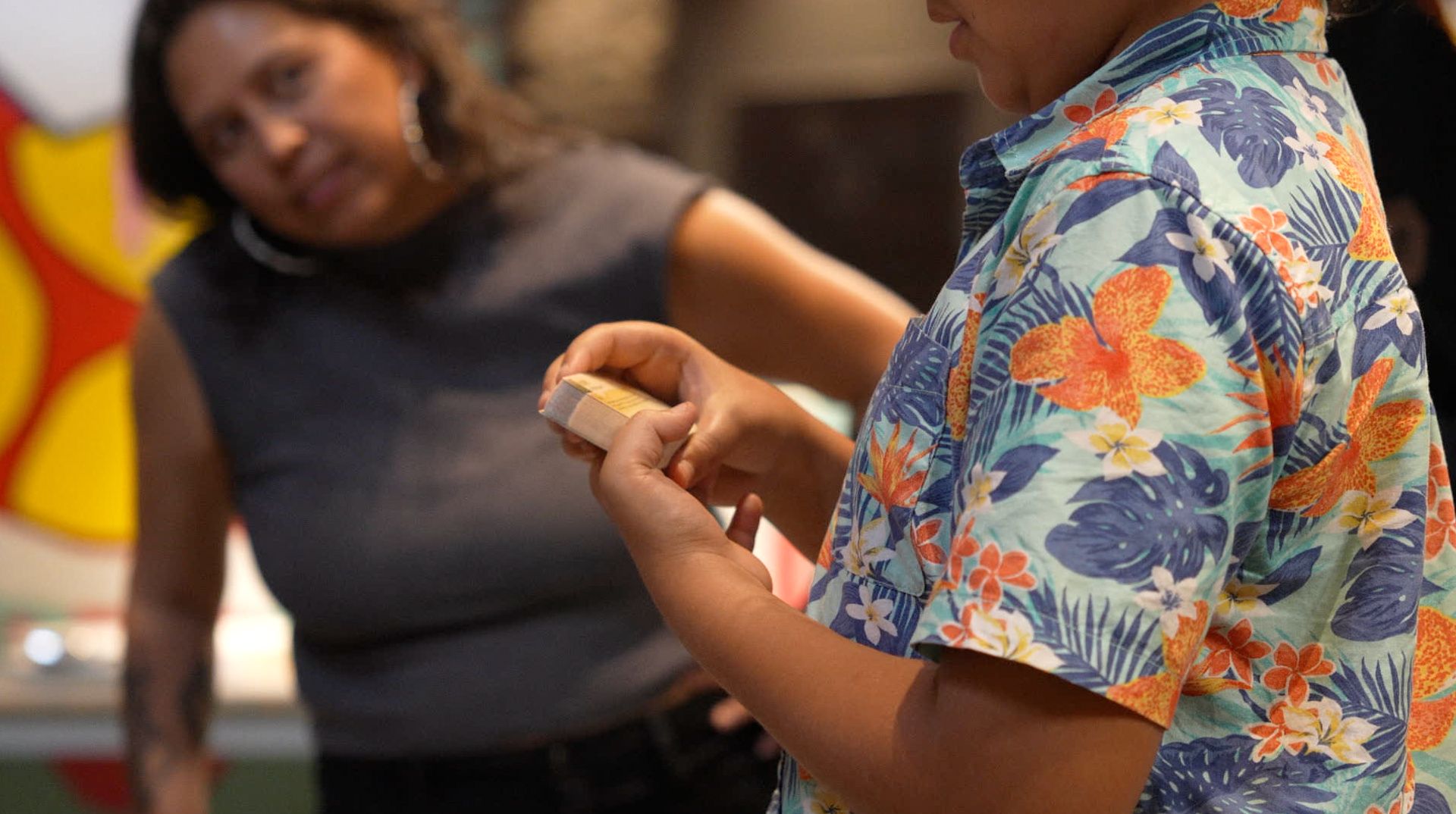
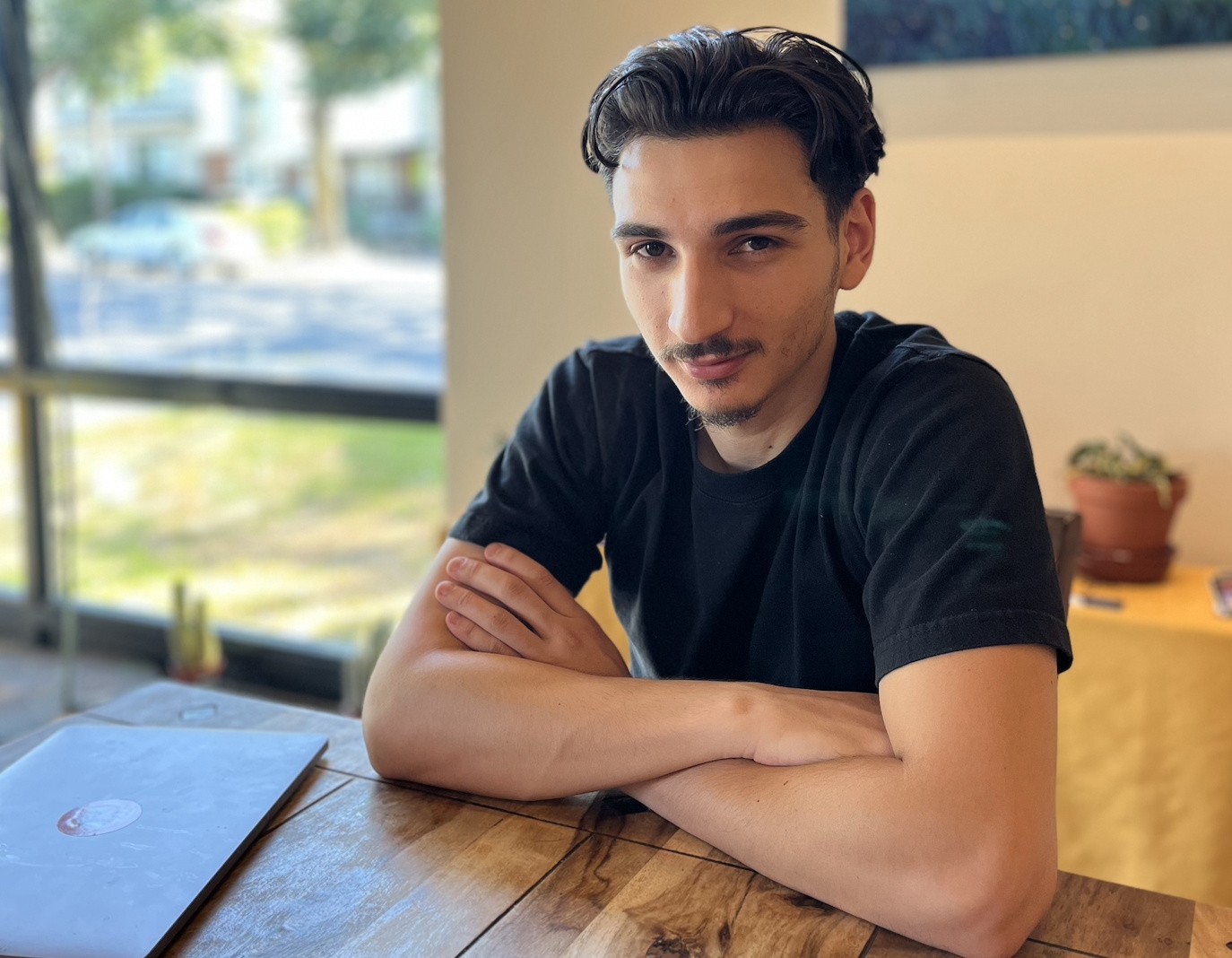
.jpg)
